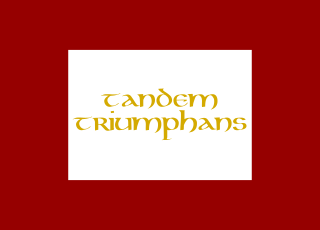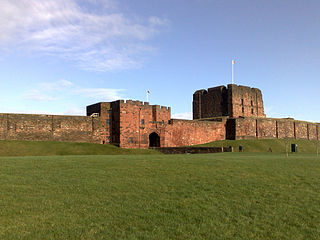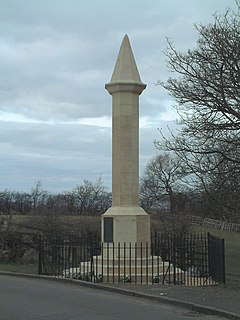Charles Douglas, 5th Lord Mordington (d. after 1746), son of George Douglas, 4th Lord Mordington by his wife Catherine née Lauder, was a Jacobite.
George Douglas, 4th Lord Mordington, died 10 June 1741 at Covent Garden, London, was the son and heir of James Douglas, 3rd Lord Mordington by his wife Anne, daughter of Alexander Seton, 1st Viscount of Kingston. George, Lord Mordington, is described by several authorities as a political writer.

Jacobitism was the name of the political movement in Great Britain and Ireland that aimed to restore the House of Stuart to the thrones of England, Scotland, and Ireland. The movement was named after Jacobus, the Latin form of James.
He went to sea when he was young and did not return to Britain until after his father's death.
Engaging in the 1745 Jacobite rebellion, he was captured at Carlisle, and tried on 11 September 1746 under the designation of Charles Douglas, Esquire. He then pleaded his peerage, which was objected to by the counsel for the Crown, but upon proof being provided his trial was postponed and he was imprisoned on remand in Carlisle Castle, from which he was soon released.

Carlisle Castle is situated in Carlisle, in the English county of Cumbria, near the ruins of Hadrian's Wall. The castle is over 900 years old and has been the scene of many historical episodes in British history. Given the proximity of Carlisle to the border between England and Scotland, it has been the centre of many wars and invasions. Today the castle is managed by English Heritage and is open to the public. The castle until recently was the administrative headquarters of the former King's Own Royal Border Regiment now county headquarters to the Duke of Lancaster's Regiment and a museum to the regiment is within the castle walls.
Upon the abolition of heritable jurisdictions the following year, he claimed for the privilege of Regality over the lands of Nether Mordington the sum of £300 which was refused.
Heritable jurisdictions were, in the law of Scotland, grants of jurisdiction made to a man and his heirs. They were a usual accompaniment to feudal tenures and conferred power on great families. Both before and after the Union frequent attempts were made by statute to restrict them, since they were recognized as a source of danger to the state. All were finally abolished by the Heritable Jurisdictions Act in 1747, following the Jacobite rising of 1745, with compensation available upon formal application by the dispossessed.
A regality was a territorial jurisdiction in old Scots law which might be created by the King only, by granting lands to a subject in liberam regalitatem, and the tract of land over which such a right extended.

Mordington is an agricultural parish in the extreme south-east of Berwickshire in the Scottish Borders region. It is five miles from Berwick-upon-Tweed and borders Northumberland to the east, and south, Foulden to the west, and Lamberton to the north. The parish is bisected by the A6105 Berwick to Duns road. The lower part of the parish is covered by the Edrington estate. It is possibly the warmest parish in Scotland; the annual hours of sunshine are said to be almost as high as at Dunbar, which records the most hours in Scotland.
His estates were forfeited. He was unmarried and upon his death the title became dormant, although his sister Mary styled herself 'Baroness Mordington' after his death. She died without issue.














